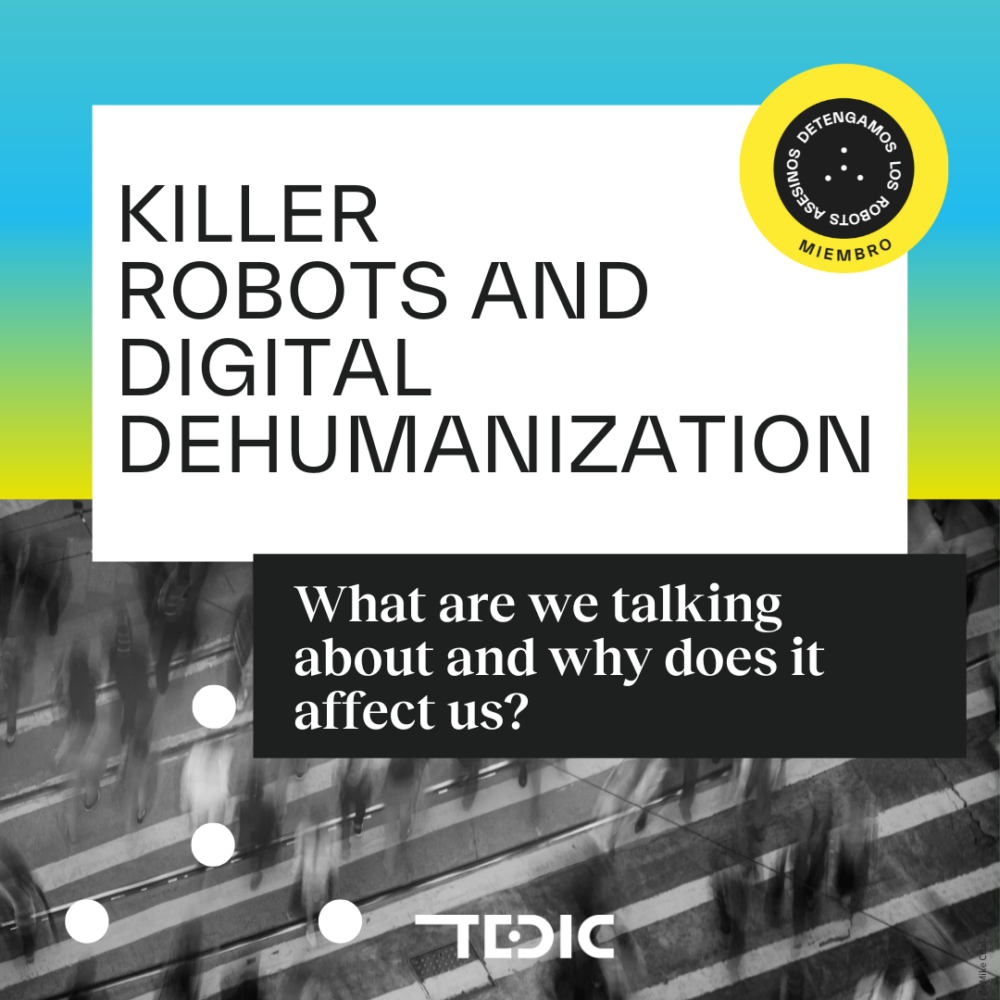
In a collaborative effort to raise awareness and mobilize society about two critical current issues: digital dehumanization and the growing development of lethal autonomous weapons (or killer robots), TEDIC has carried out three significant activities within the framework of the international “Stop Killer Robots” campaign. These activities were conducted in collaboration with the Science and Technology Commission of the Chamber of Deputies. Through art, these initiatives aimed to offer a critical perspective on the ethical and social challenges we face in the digital era, highlighting the importance of Paraguay’s role in the global debate on the use of autonomous weapons in conflict contexts.
Re(x)sistentes to Digital Dehumanization
The first initiative aimed to fuse art and activism, two exclusively human expressions, in the artistic exhibition titled “Re(x)sistentes to Digital Dehumanization” held on November 30th, at Muta space. This joint exhibition sought to provide a critical view of the ethical and social challenges of the digital era, highlighting the phenomenon in which people are reduced to data, stereotypes, and labels, as well as the danger of dehumanization. Curated by Jazmín Ruíz Díaz, this exhibition represented an effort to raise awareness about the importance of an ethical evolution of technology, particularly in the field of artificial intelligence and autonomous systems.
The exhibition also featured works by local artists such as Alegría González and her “Archivos de sentimientos” and Laura Mandelik and Victoria Mussi with their work “Binarie,” whose visual narratives emphasize the importance of protecting human rights in the digital age. This effort to exhibit and articulate works was also framed in connecting the different messages of the artworks with the #MyDataMyRights campaign, as part of our fight for a comprehensive personal data protection law in Paraguay.
The exhibition was attended by more than 120 people, who resisted the afternoon heat while enjoying a unique view of the city of Asunción. From the 10th floor of the Muta art space, we shared talks, drinks, snacks, and a music session by Dj Gea, with the aim of feeling more human than ever, connecting through art, community, and resistance to the unique challenges of the digital era.
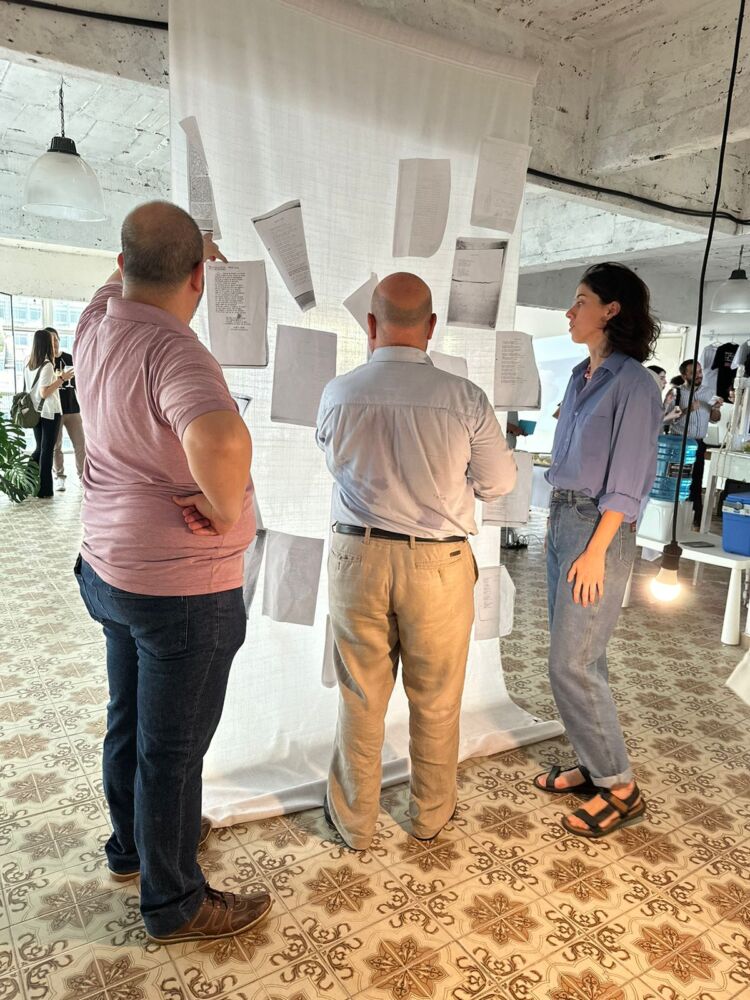
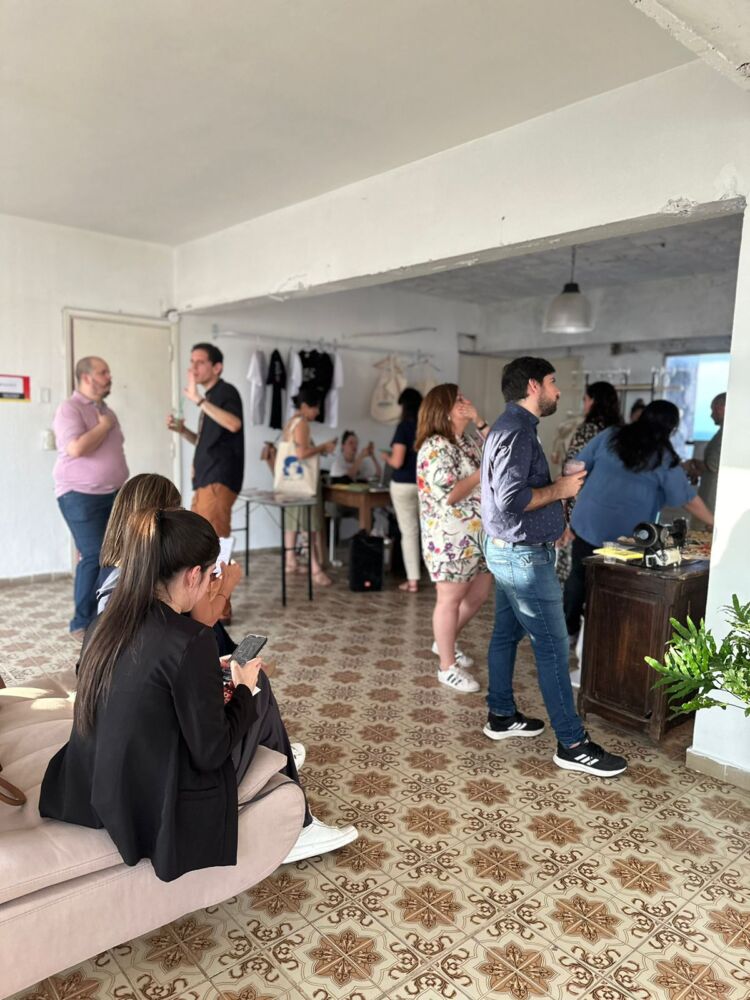
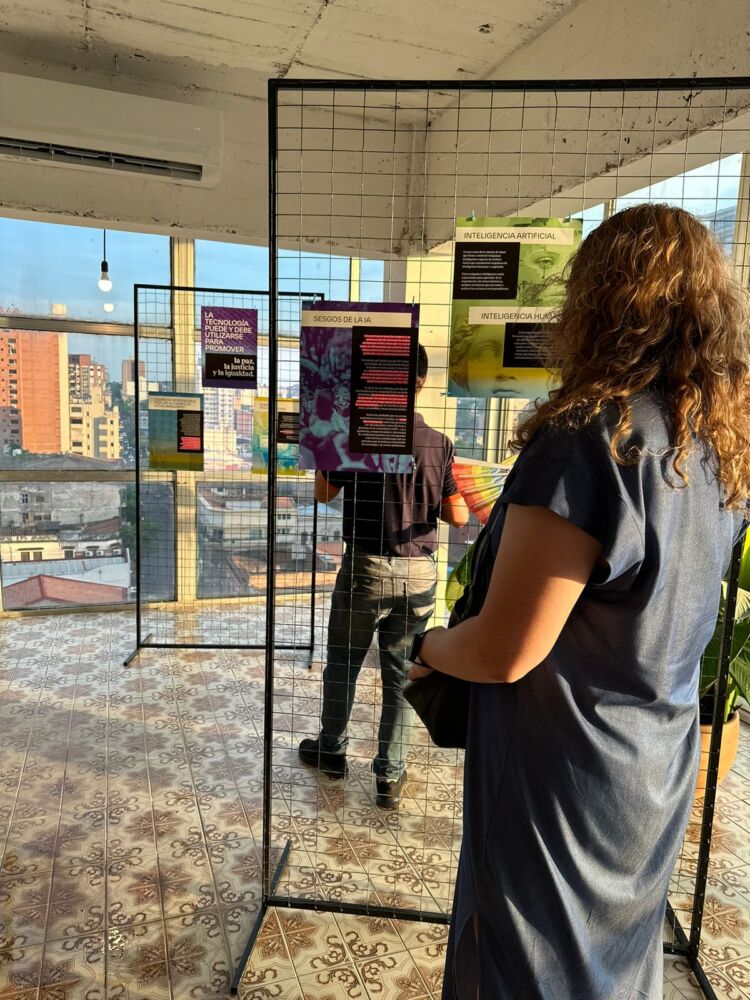
Killer Robots and Digital Dehumanization: What Are We Talking About and Why Does It Affect Us?
On the morning of Monday, December 4th, we extended our exhibition to the Central Library and Archive of the National Congress (BACCN), where we sought to delve into the ethical and legal challenges of automating lethal weapons and the need for a comprehensive personal data law in Paraguay. Deputies, senators, representatives of the Ministry of Defense, and the Diplomatic and Consular Academy of Paraguay participated. This event was an opportunity to explore how the development of these technologies impacts our human rights and the importance of active involvement by States in matters of policy, technology, and international regulation.
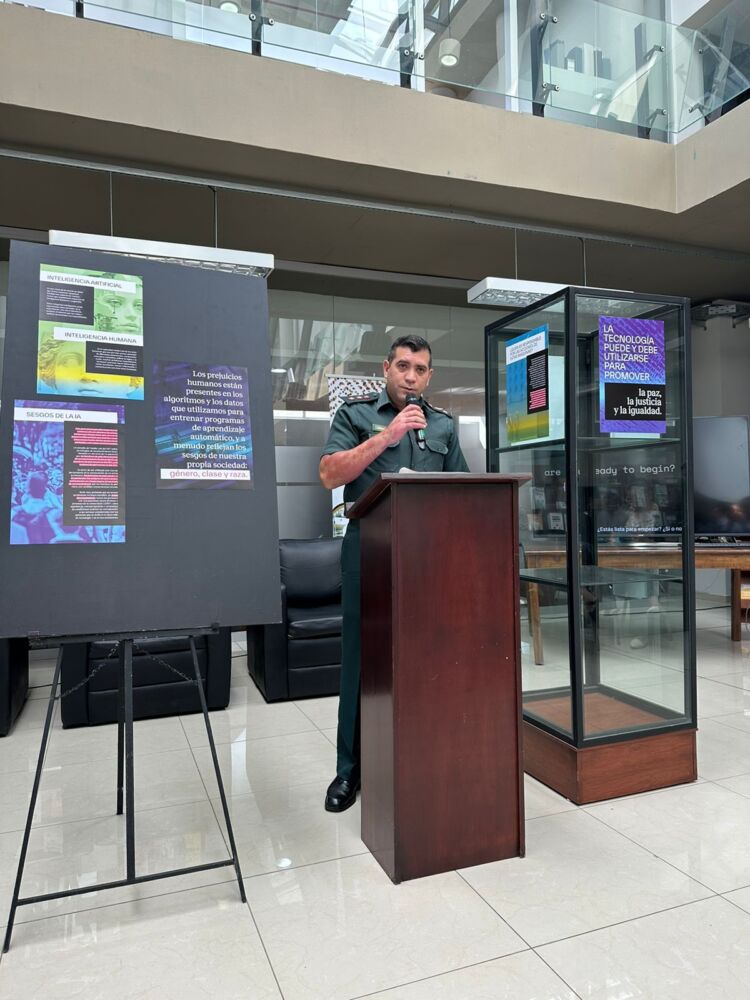
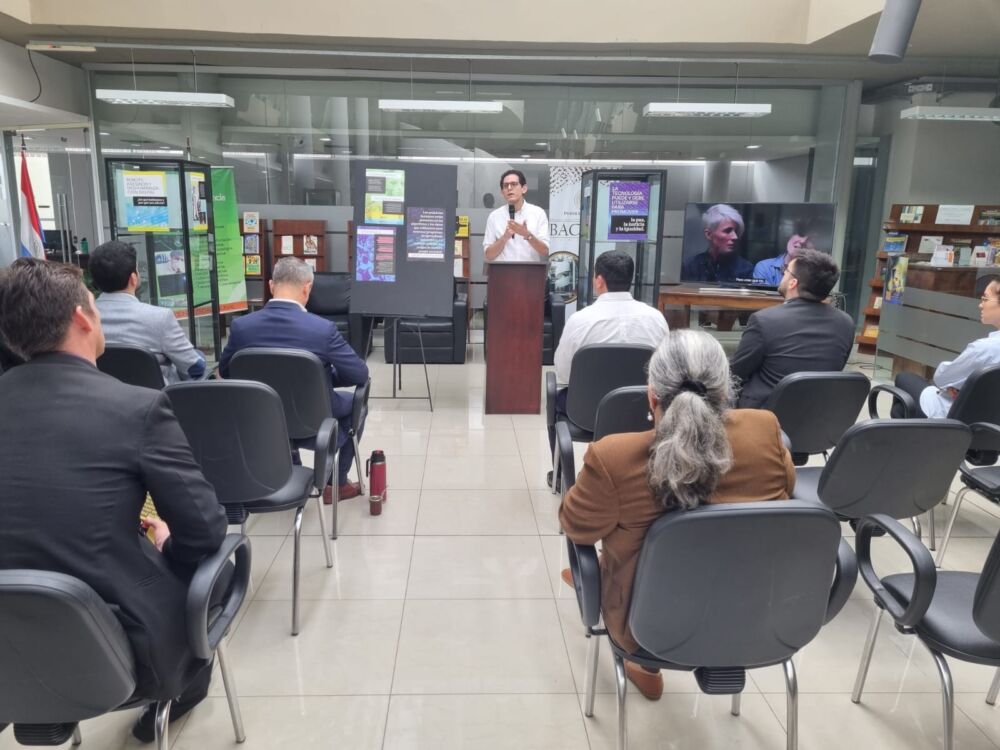
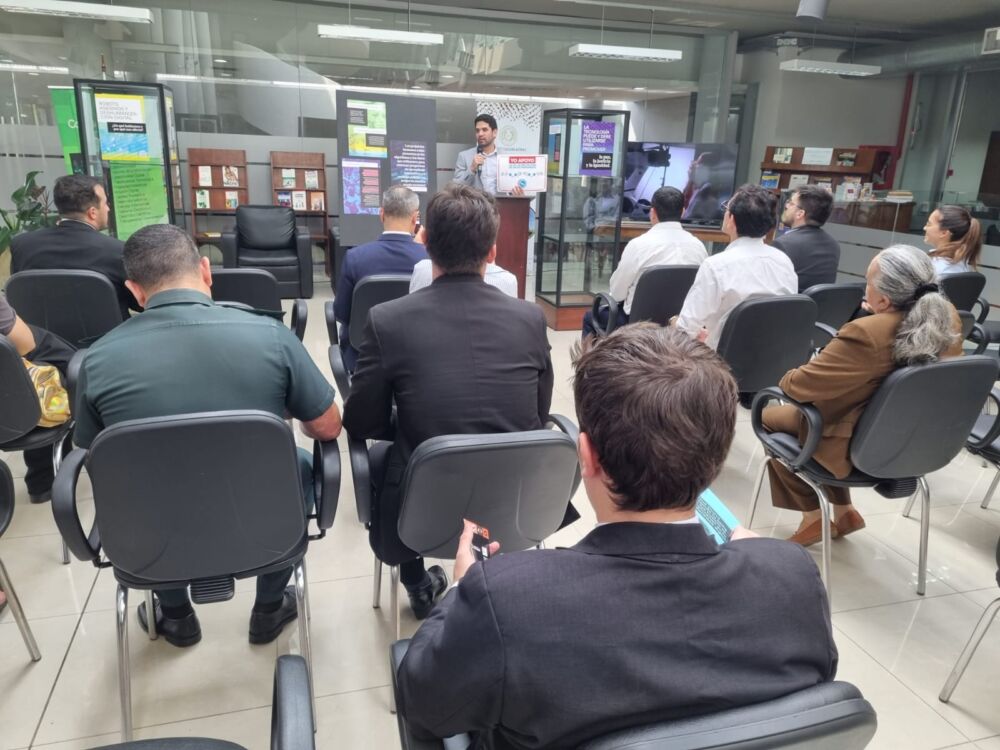
As a synthesis of the action and intervention at the BACCN, legislators, representatives of the National Ministry of Defense joined with a unified message during the exhibition, echoing Paraguay’s position in the latest resolution on autonomous weapons at the United Nations General Assembly. In this resolution, Paraguay, along with 163 other countries, expressed the urgent need for international regulations to address the challenges and concerns related to these technologies, emphasizing the importance of prioritizing peace and respect for human rights in the digital era.
Drawing the Future: Artistic Reflections on Killer Robots at the Colectiva Robusta Fair
Additionally, on Saturday, December 9th, we took the Killer Robots exhibition to the Colectiva Robusta fair, a diverse space of art and culture that hosted the work of more than 20 female illustrators who are part of this group and was attended by more than 700 people. Colectiva Robusta currently comprises about 50 Paraguayan illustrators with various styles and voices, aiming to grow and disseminate art from our country, where people can connect directly with the artists and their work. In this space, we were able to share, from an artistic perspective, our concerns about digital dehumanization and the use of autonomous weapons.
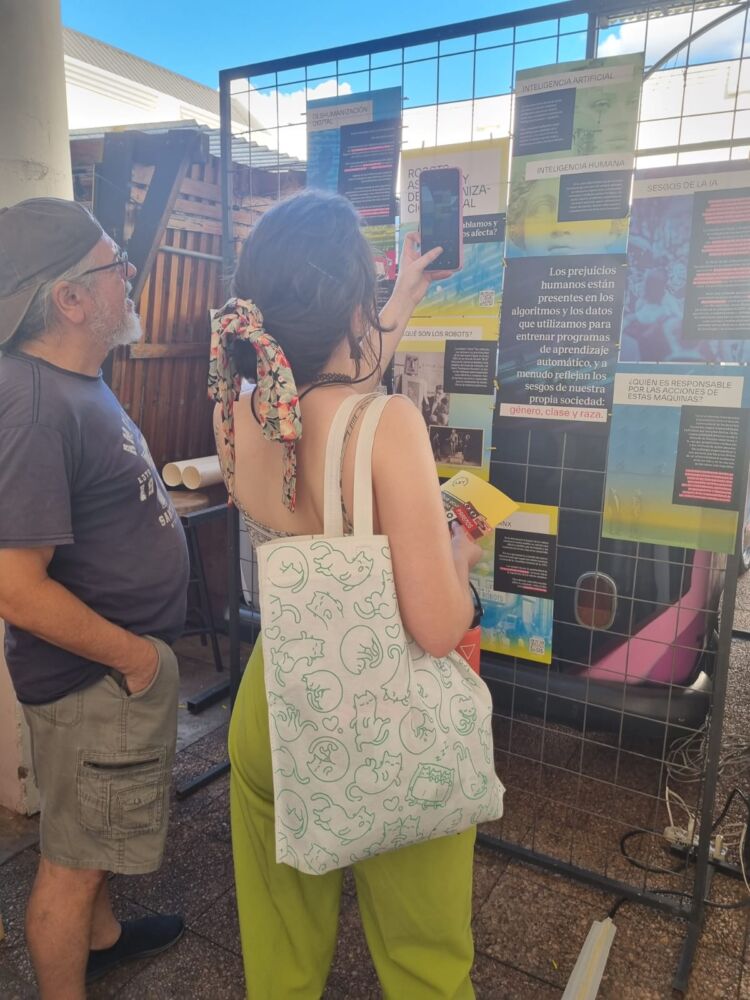
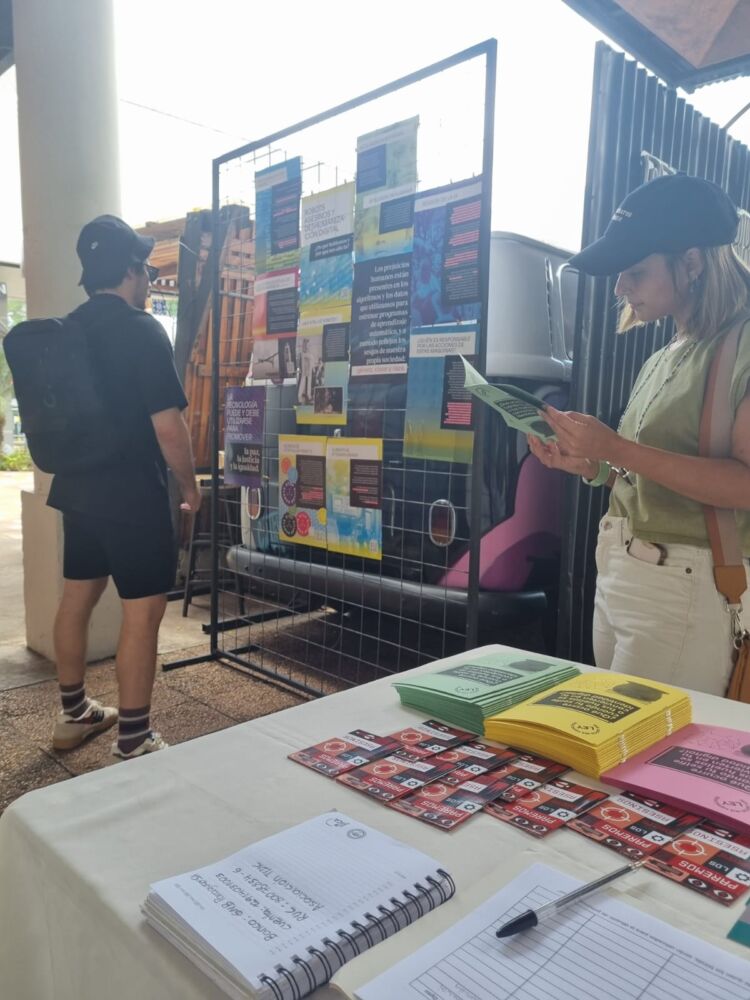
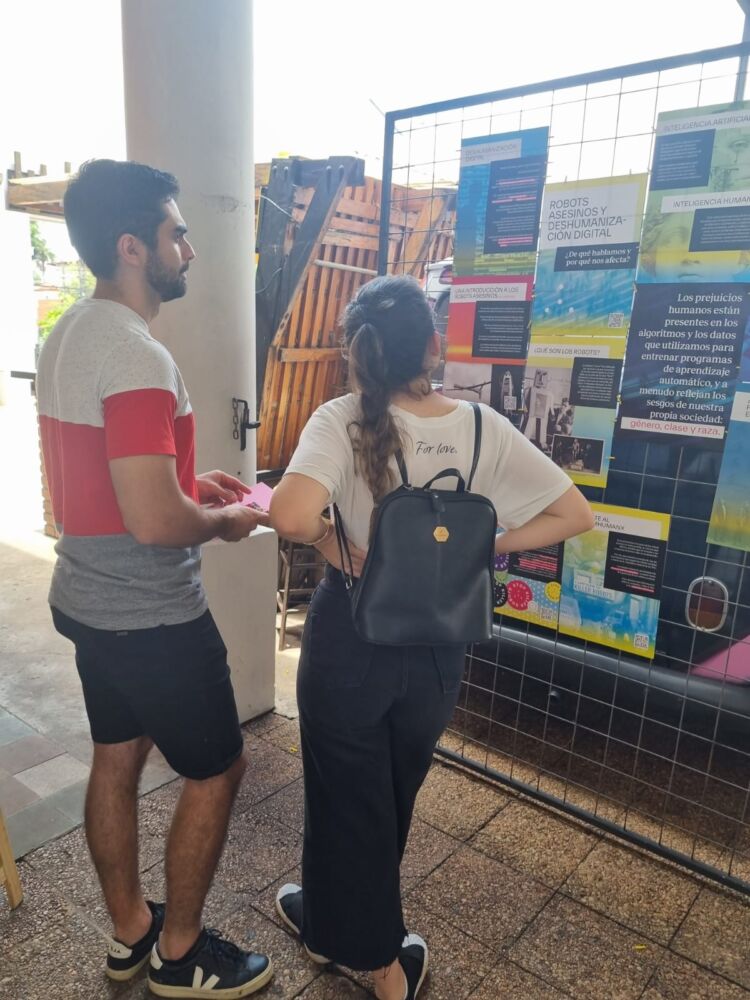
At TEDIC, we see these initiatives not only as isolated events but as a crucial step in reaffirming our commitment to building a future where technology is developed responsibly and respectfully towards our human rights. The call to stop killer robots and the pressing need for a comprehensive personal data protection law in Paraguay are just two actions that remind us of the importance of ensuring that technological advancement always goes hand in hand with ethics, humanity, and the protection of our fundamental rights.

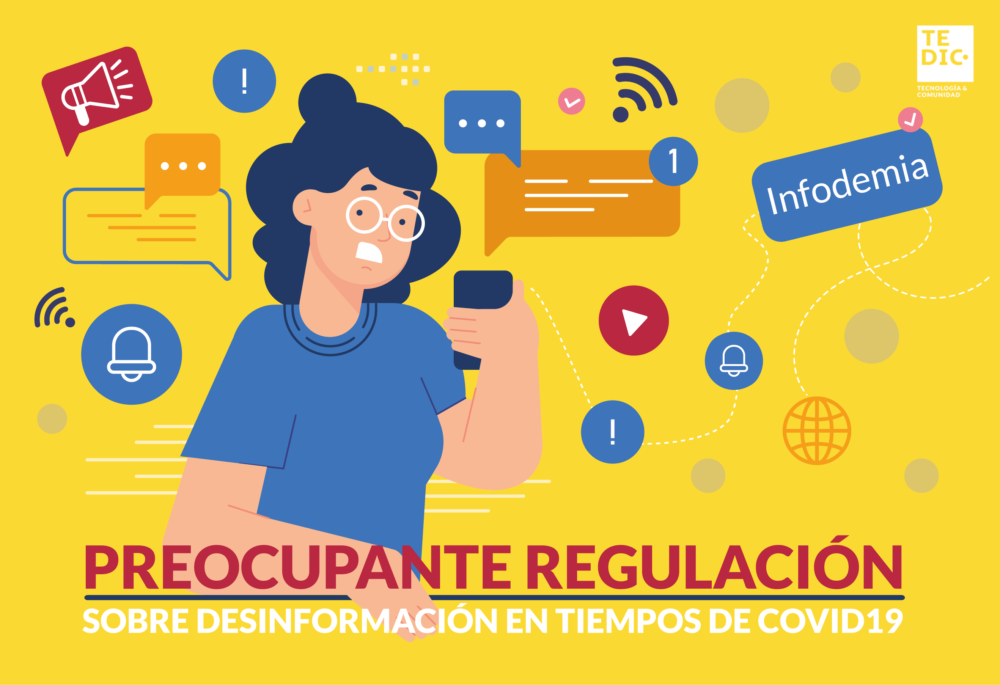 Worrisome regulation on disinformation in times of COVID19
Worrisome regulation on disinformation in times of COVID19 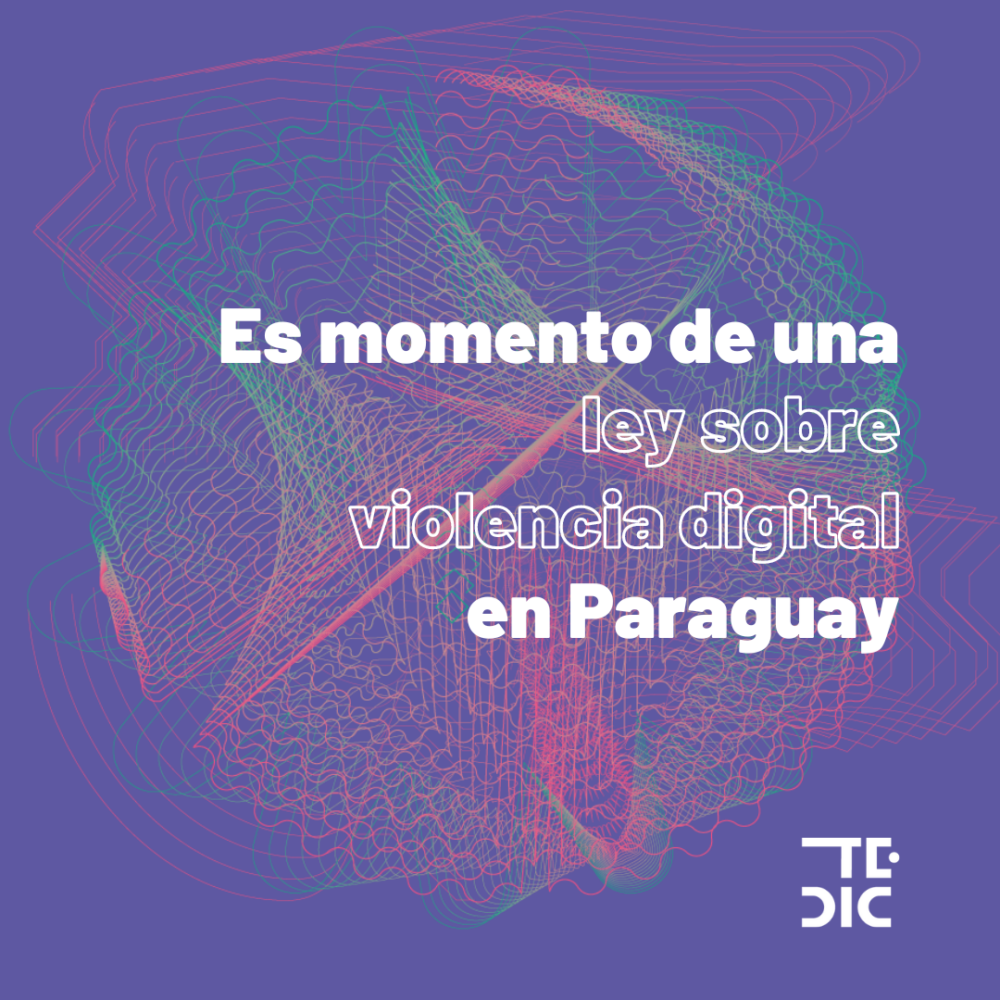 It’s time for a law on digital violence against women in Paraguay
It’s time for a law on digital violence against women in Paraguay